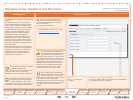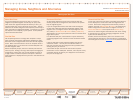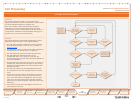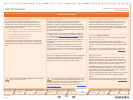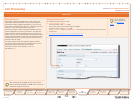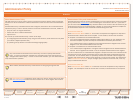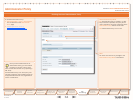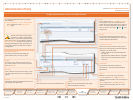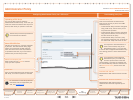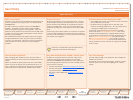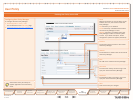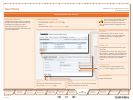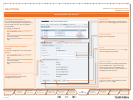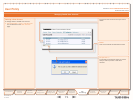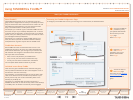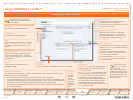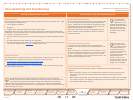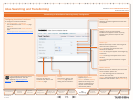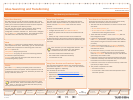
D 14049.01
07.2007
67
Text goes here
Introduction
Getting
Started
System
Overview
System
Configuration
H.323 & SIP
Configuration
Registration
Control
Zones and
Neighbors
Call
Processing
Firewall
Traversal
Bandwidth
Control
Maintenance
Appendices
Text goes here
Call
Processing
TANDBERG VIDEO COMMUNICATION SERVER
ADMINISTRATOR GUIDE
Call
Processing
User Policy
What is User Policy?
User Policy is the set of rules that determines what happens to
a call for a particular user or group when it is received by the
TANDBERG VCS.
The VCS’s User Policy is based on the use of TANDBERG’s
FindMe™. This feature lets you assign a single “FindMe”
name to individuals or groups in your enterprise. Users can
determine which devices will be called when their FindMe name
is dialled, and can also specify what happens if those devices
are busy or go unanswered.
The FindMe feature means that potential callers can be given
a single FindMe Alias on which they can contact an individual
or group in your enterprise - callers won’t have to know details
of all the devices on which that person or group might be
available.
About User Policy
Who Must do What Before FindMe™ Can Be Used?
FindMe™ is an optional feature on the VCS, and you must
install the appropriate option key before it can be used.
Contact your TANDBERG representative for more information.
The following steps are required for the use of FindMe one the
option has been installed:
The VCS administrator enables and configures User Policy.
The VCS administrator creates a user account for each user
or group who require a FindMe name.
The owner of the FindMe name configures their account
settings.
1.
2.
3.
Process Overview
When the VCS receives a call for a particular alias, it checks
to see whether User Policy has been enabled. If so, the VCS
queries the User Policy Manager to see whether that alias is
listed as a FindMe name. If so, the call is forwarded to the
endpoints according to the User Policy set up for that FindMe
alias.
If User Policy has not been enabled, or the alias is not present
in the User Policy Manager, the VCS will continue to search for
the alias in the usual manner, i.e. first locally and then sending
the request out to neighbors.
User Policy Manager
The User Policy Manager is the application that manages the
FindMe user accounts.
The VCS has its own User Policy Manager. However, you also
have the option to use a User Policy Manager on a remote
system.
How are Devices Specified?
When configuring their FindMe account, users are asked to
specify the devices to which calls to their FindMe name will be
routed.
While it is possible to specify aliases and even other FindMe
names as one of the devices, we recommend that this is not
done. Instead we recommend that users specify the physical
devices they wish to ring when their FindMe name is called.
User Policy is invoked after any Administrator Policy
configured on the VCS has been applied.
Recommendations When Deploying FindMe
The FindMe name should be in the form of a URI, and should
be the individual’s primary URI.
Endpoints should not register with an alias that is the
same as an existing FindMe name. You can prevent this by
including all FindMe names on the Deny List.
For example, users at Example.com would have a FindMe
name in the format john.smith@example.com. Each of their
endpoints would be registered in a slightly different format,
for example their office endpoint would be registered with the
alias john.smith.office@example.com; their home endpoint
as john.smith.home@example.com and their Movi name as
john.smith.movi@example.com. Each of these endpoints can
then be included in the list of devices to ring when the FindMe
name is called.
•
•



